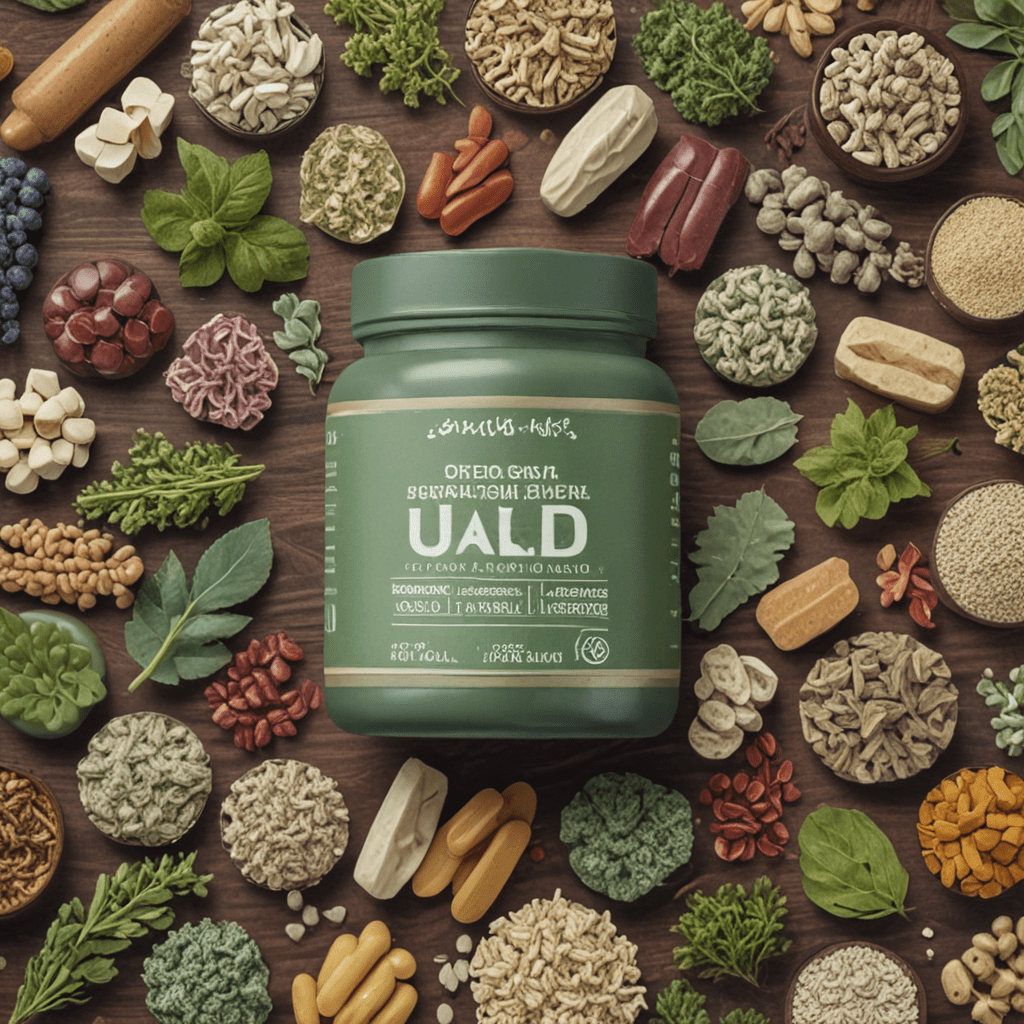
1. Introduction: The Role of Herbal Supplements in Stress Management
Stress has become an inevitable part of modern life, taking a significant toll on our physical, mental, and emotional well-being. Recognizing the need for effective stress management, many individuals are turning to herbal supplements as a natural and holistic approach to alleviate stress and promote overall wellness. Herbal supplements have been used for centuries in traditional medicine practices to calm the nervous system, reduce anxiety, and improve sleep quality. By understanding the role of herbal supplements in stress management and the specific herbs that can provide relief, we can harness their therapeutic benefits to enhance our resilience and well-being.
2. Understanding Stress and Its Impact on Health
Stress is a natural response to perceived threats or challenges. While short-term stress can be beneficial, chronic stress can lead to a myriad of health problems, including anxiety, depression, digestive issues, cardiovascular disease, and compromised immune function. When the body is under stress, it releases stress hormones such as cortisol and adrenaline, which can increase heart rate, blood pressure, and respiration. This "fight-or-flight" response can be helpful in acute situations but becomes detrimental when it is prolonged.
3. Traditional Herbs for Calming and Relaxation
Traditional herbal medicine recognizes the profound effect of certain plants on the nervous system. Herbs like chamomile, lavender, and valerian root have been employed for centuries to promote relaxation and reduce stress. Chamomile possesses calming and sedative properties, making it an effective choice for reducing anxiety and promoting restful sleep. Lavender is known for its soothing and anti-inflammatory effects, helping to alleviate tension headaches and improve mood. Valerian root has been traditionally used as a sleep aid, promoting relaxation and reducing the time it takes to fall asleep.
4. Adaptogens: Herbal Allies for Resilience and Balance
Adaptogens are a unique group of herbs that help the body adapt to stress, both physical and mental. They work by supporting the body's natural stress response mechanisms and modulating the activity of the endocrine system. Ashwagandha, rhodiola, and holy basil are prominent adaptogens that have been shown to reduce anxiety levels, improve cognitive function, and enhance resilience to stress. Ashwagandha, in particular, has been found to lower cortisol levels, a key stress hormone.
5. Herbal Blends for Stress Relief and Sleep Improvement
Herbal blends combine the synergistic effects of multiple herbs, providing a comprehensive approach to stress relief and sleep improvement. Formulations containing a mix of calming herbs like chamomile, lavender, and valerian root work harmoniously to soothe the nervous system and promote restful sleep. Stress-reducing herbal blends often incorporate adaptogens like ashwagandha or rhodiola to bolster resilience and reduce anxiety levels. These blends address multiple aspects of stress and sleep, providing synergistic benefits for overall well-being.
6. Evidence-Based Herbal Remedies for Anxiety
Research has validated the efficacy of certain herbal remedies in reducing anxiety levels. Passionflower, for instance, has been shown to have anxiolytic effects comparable to benzodiazepines, a class of prescription anti-anxiety medications. It is particularly effective in reducing generalized anxiety and insomnia. Lemon balm, another well-researched herb, has been found to alleviate anxiety and improve cognitive function. Clinical studies have demonstrated that taking lemon balm extract can significantly reduce symptoms of mild to moderate anxiety.
7. The Importance of Quality Control and Safety
When choosing herbal supplements for stress relief, it is paramount to consider quality and safety. Look for brands that adhere to Good Manufacturing Practices (GMP) standards, ensuring consistency and purity in their products. Verify the source of the herbs and opt for suppliers that provide third-party testing results. Reputable manufacturers will offer transparent information about growing practices, extraction methods, and potential contaminants.
8. Interactions and Contraindications with Herbal Supplements
It is essential to consult with a healthcare professional before taking any herbal supplements, especially if you have existing health conditions or are taking prescription medications. Some herbs may interact with certain drugs, altering their metabolism or effectiveness. For instance, St. John's wort, commonly used for depression, can interact with antidepressants and blood thinners. Always disclose your supplement use to your doctor to avoid potential complications.
9. Consultation and Dosage Considerations
The appropriate dosage of herbal supplements varies depending on the individual and the specific herb being used. It is crucial to follow the manufacturer's instructions carefully. Start with the lowest recommended dose and gradually increase as needed. If you experience any adverse effects, discontinue use and consult with a healthcare professional. It is advisable to work with a qualified herbalist or naturopathic doctor who can provide personalized guidance and monitor your progress.
10. Conclusion: Integrating Herbal Supplements into a Holistic Approach to Stress Relief
Herbal supplements can be a valuable tool for stress management, providing a natural and holistic approach to reducing anxiety and promoting overall well-being. By understanding the role of herbal supplements, the specific herbs that can provide relief, and the importance of quality control and safety, you can harness the power of nature to mitigate the effects of stress. It is essential to integrate herbal supplements into a holistic lifestyle that includes regular exercise, a balanced diet, and mindfulness practices to achieve optimal stress relief and enhance your quality of life.
Frequently Asked Questions (FAQs)
1. Can herbal supplements replace prescription medications for anxiety?
While herbal supplements can provide relief from anxiety, they are not a substitute for prescription medications. If you have severe or persistent anxiety, it is important to consult with a healthcare professional to determine the most appropriate treatment plan.
2. Is it safe to take multiple herbal supplements for stress relief?
Combining different herbal supplements can be beneficial, but it is crucial to consult with a qualified healthcare professional to ensure that there are no contraindications or interactions between the herbs.
3. How long does it take for herbal supplements to work for stress relief?
The onset of action for herbal supplements varies depending on the individual and the specific herb being used. Some herbs may provide immediate relief, while others may take several weeks of consistent use to show significant effects.
4. What are the potential side effects of herbal supplements for stress relief?
Most herbal supplements are generally well-tolerated, but some may cause mild side effects, such as nausea, headaches, or digestive upset. If you experience any adverse effects, discontinue use and consult with a healthcare professional.
5. Can herbal supplements cause addiction?
Herbal supplements are typically not addictive, but it is important to follow the recommended dosage and use them responsibly. If you have any concerns about addiction or dependency, consult with a healthcare professional.


